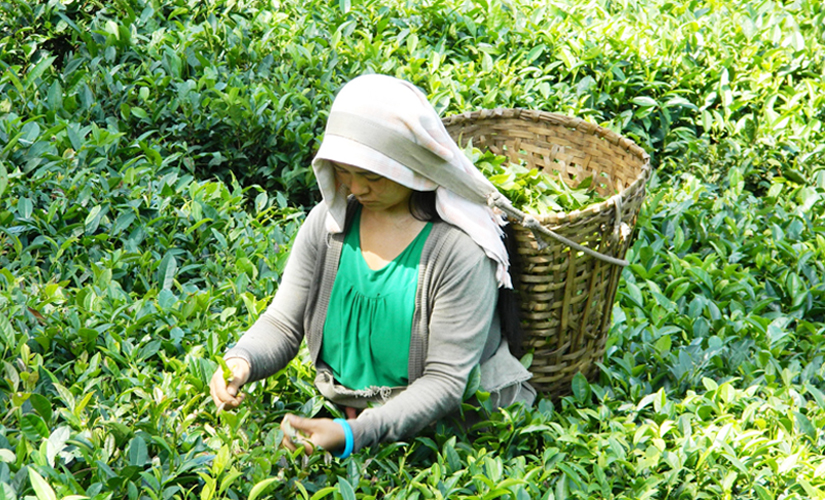
Non-payment of Wages to Tea Garden Workers during Covid-19 Lockdown
|
International Union of Food Agriculture & Ors. v Union of India & Ors is a contempt petition filed for implementation of order passed by this Hon’ble Court in Writ Petition (C) No. 365 of 2006 video order dated 6.8.2010. It is contended that after the Covid-19 lockdown several tea-garden workers have not been given ration or wages in different tea gardens of Assam.
Subject matter of Writ Petition (C) No. 365 of 2006 filed was concerned with approximately 300,000 workers in the sick/closed tea gardens in West Bengal, Assam, Kerala, Tamil Nadu, Tripura, Karnataka, Himachal Pradesh and Uttaranchal. 240 workers died of starvation between March 2002 and February 2003.
As the supply of rations and drinking water to the tea estates had been stopped the workers were drinking water from the contaminated river streams. Even then the deaths could have been avoided but as the hospitals were closed, treatment was not possible. The conditions of children were most pathetic. Provident Fund, Gratuity and earned wages were not paid for years. Responding to the concerns of civil society over such alarming situation, the Ministry of Labour, Union of India appointed an Inter-Ministerial Committee on plantation labour and a report was published on 18.8.03. Out of the 4819 registered plantations, 1367 were defaulting in the payment of workers’ dues, the largest default occurring in the plantations in Kerala, Assam and West Bengal. The Committee warned that the default position was “further deteriorating” particularly in Kerala, West Bengal and Assam.
The Committee warned that the default position was “further deteriorating” particularly in Kerala, West Bengal and Assam. Then the International Labour Organization published a report on 24.3.05 on plantation labour in the West Bengal Tea Industry and reported, “Several estates that shut down…had accumulated huge dues on account of unpaid bonus and wages and had also not deposited with the appropriate authority the provident fund contributions deducted from workers dues”. In many tea estates the workers’ rations had not been distributed and electricity bills not paid. Tens of thousands of people were affected as each plantation worker supported about 4 dependents. The conditions of the women were particularly appalling since they were earning only Rs. 20/- per day even when the gardens were operating against a minimum wage of approximately Rs. 50/-. The worst affected were the elderly, children and the disabled. It was estimated that “100,000 permanent workers were affected by estate closures across the entire country.” The report went to say that while the distress was widely reported in the media “little organized effort was made to investigate and report… it was almost taken as a given that plantation workers were bound to suffer.” The ILO noted that the central government had adequate powers under the Tea Act, 1953 to grant relief to the workers. However, “the Tea Board continued to look at the plantation crisis purely on the marketing end and failed to fulfill its regulatory role as enshrined in the Tea Act.” The Tea Board “ignored the….wage and provident fund defaults by the estate managements.”
Instead of intervening in this alarmingly sorry state of affairs, Government of India , through the Tea Board, introduced a Tea Quality Up-gradation and Product Diversification Scheme for the period 1.4.07 to 31.3.12 where 1500 crores were allocated for the tea gardens. A close look at the Scheme showed that it was not applicable for sick/closed gardens and that not a single rupee was set aside for the payment of workers dues.
After a long stretched legal battle where Senior Advocate Colin Gonsalves (Founder-SLIC) argued on behalf of such workers, Hon’ble Supreme Court of India vide its order dated 06.08.10 has now categorically directed Government of India to carry out its statutory duty under Tea Act 1953 in terms of Section 16 B, 16 C, 16 D and 16 E within a period of six month from the date of such order.
The Tea Act, 1953 was enacted by Parliament precisely to meet a situation where the owners of the tea estates absconded or mismanaged the estate to the detriment of the workers. Section 16 B empowers the Central Government to investigate loss making tea undertakings or units that “have habitually made default in the payment of wages, or provident fund dues of workers.” Under Section 16 D the Central Government may assume management or control of the tea undertakings/units in the situation as mentioned in section 16 B. Under Section 16 E the Central Government may take over a tea undertaking even without an investigation if it is found that the undertaking has made “reckless investments” or has done a “diversion of funds” as a result of which closure is imminent or has been affected. Thus the Tea Act is a very powerful tool to take over the management/control of the tea undertakings / units and take steps thereafter to ensure that the dues of the workers are paid.